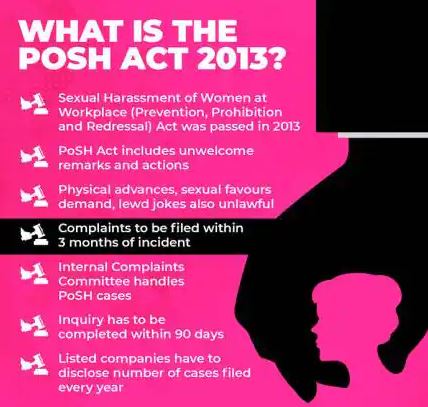Wrestling Sexual Harassment
Context:
The protest by the medal-winning wrestlers from India has been making headlines for a while. According to reports, the Delhi police lodged two complaints of sexual harassment against the Wrestling Federation of India (WFI) president on April 28, 2023, following the Supreme Court of India’s intervention and based on a petition submitted by a few athletes.
Protection of Children from Sexual Offenses (POCSO) Act
- The Protection of Children from Sexual Offences (POCSO) Act was passed in 2012 with the goals of protecting children from sexual offences and establishing special courts for the quick adjudication of such cases.
- In addition to ensuring children’s physical and emotional well-being, the act strives to protect them from sexual abuse, exploitation, and pornography.
- In addition to sexual assault, sexual harassment, penetrative sexual assault, and child pornography, the act defines other types of sexual offences against children.
- The goal of the law is to uphold children’s rights and interests throughout the judicial system. It includes provisions for the victim’s statement to be recorded in a way that is suitable for children and allows for the help of an interpreter, special educator, or any other professional while the statement is being recorded.
- The act imposes severe penalties on anybody found guilty of sexual offences against minors. Depending on the type and seriousness of the offence, several penalties may be imposed, such as jail time, fines, or a combination of both.
- The statute requires the creation of specialised courts to hear cases involving sexual assaults on children. These courts are designed to speed up the legal procedure while protecting the victims’ privacy and confidentiality.
- The act requires all people and organisations to legally report any information they may have concerning sexual offences against children. Additionally, it describes the reporting and investigative processes while putting a strong emphasis on the importance of discretion and sensitivity.
- The statute places a strong emphasis on establishing a setting that is child-friendly throughout the legal process. It allows for the use of screens or other safeguards to keep the youngster from coming into touch with the accused and contains provisions for the presence of a parent or guardian throughout the trial.
 Points to Ponder:
Points to Ponder:
- Registration of FIR: In Lalita Kumari v. Gov. of Uttar Pradesh and others (2014), the Supreme Court ordered that if a complaint contains the ingredients of a cognizable offence, the First Information Report (FIR) shall be registered as soon as possible. At this point, it is unnecessary to question whether the accusations are true.
- Delay in submitting complaints: While a delay in filing an FIR does not automatically invalidate the prosecution’s case, if the delay lasts longer than three months, adequate justifications should be provided. Although a plausible explanation can lessen the effects of the delay, more convincing evidence may be needed to support the claims.
- Drug analysis testing: These tests are carried out under strict guidelines outlined in Selvi v. State of Karnataka (2010) on suspects or witnesses rather than victims. Tests for narcotics cannot validate the veracity of claims. Cross-examining the victim usually yields information about her reliability.
- Arrest: According to Section 41 of the Code of Criminal Procedure, an arrest is not required unless there is solid proof that there has been evidence of tampering, a threat has been made, other offences are being prevented, or a proper investigation is required. There must be evidence and justifications for the arrest.
- Investigation completion: Given the sensitivity of the cases, it is advised that the Delhi police swiftly wrap up their inquiry and deliver their final report to the judge. If the investigation is finished within 60 days of the arrest, the detainee cannot be released on bond for crimes carrying a sentence of less than ten years.
- The presumption in favour of prosecution: The POCSO Act presumptively favours prosecution where a victim is a minor. It falls to the accused to establish their innocence. The police must turn in their final report to the court if they cannot discover enough proof to indict the defendant.
- Approaching the court: If the victims are unhappy with how the proceedings are progressing, they can ask the Delhi High Court to order the police to promptly wrap up their investigation and submit a status report.
Similar topics
On Sexual Harassment In The Workplace
(Prevention, Prohibition and Redressal) Act, 2013 (POSH Act)


 Points to Ponder:
Points to Ponder:

